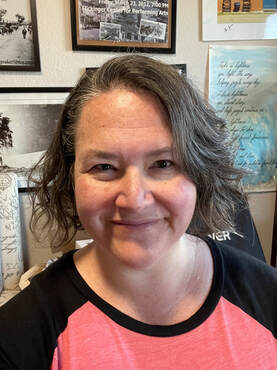 Remember to smile. Remember to smile. The pandemic taught me to bend without breaking. Actually, I learned many things during this chaotic time in our history. I was brought to my knees with grief and also exhilarated by new choices and opportunities. I learned that when everything gets serious it’s more important than ever to have a sense of humor. I learned to let go, and I embraced new things with open arms. I often wonder how we’ll look back on this period in our lives in ten years? Or fifty? How will our children be different young adults than we were as a result of this shift in our lives? The pandemic showed me that I don’t know everything and that sometimes my assumptions are just plain wrong. It’s a lesson I’m very thankful for everyday. So, here I am, on this blog that started as a journal for all my weird and crazy exploits and became a place to showcase writing talent (mine, but mostly other amazing authors). And now I’m ready for a new beginning with a slightly different focus. Why I Mention the PandemicNot that it isn’t an ever-present topic of discussion these days, but I bring it up here because I’ve been thinking about how it impacted one very specific part of my life. I mean, who hasn’t been smooshed around a little bit, both inside and out, by the past few years? We’ve all had personal experiences related to COVID-19 and I am no exception. I homeschooled my kids for a year, tried to keep my writing organization afloat, and discovered (the hard way) that ordering donuts for delivery is a bad idea. I could write a book about how I’ve changed as a person, but before I get to anything that intimate, let me start with the implications of literally writing and publishing books during a global pandemic. Because I published a book in 2021 and it was a very strange experience. Publishing in a Time of COVID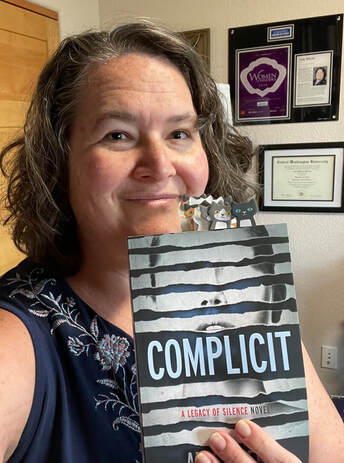 The all-important cat copy The all-important cat copy I don’t think it particularly matters whether you’re traditionally or indie published–every single author who put a book out during the pandemic was affected by a change in how events are done, production shortages, and a host of other situations that none of us were entirely prepared for. I know a few authors who put publication off by a year or two to try and avoid the pitfalls of an unpredictable market and ever-changing social and political environment. Me? I decided what the hell. Publishing a book consists of a number of completely routine and sometimes soul-wrenching tasks, from actually writing the book to editing and revisions, to layout and cover design, to the dreaded pre- and post-publication promotion. Most of those items are just part of the process. You know they’re coming and you generally know how you’re going to get them done. But oh the pain of promotion during lockdown. As an indie author, I’ve experimented with a lot of different promotional ideas, but at some point, live events usually happen. Except when they can’t. Or they can, but on Zoom. Zoom fatigue anyone? The two things that really got me through the launch of Complicit were my publicist and my online launch party team. Hiring a publicist was incredibly important in getting the word out to new readers. She kept me hopping with blog interviews and podcast invites for months both pre- and post-publication. In lieu of an in-person launch party, I had a Zoom event (I’m sure most of of us did) and though I wondered how it was all going to work out, I had such amazing support. First from my BFF who did all the background technical stuff allowing me to just focus on interacting. And second, from my amazing author friend Rea Frey who hosted the event and was such a joy to be in conversation with. Learning to Let Go of the OutcomeAs with everything else going on at the time, each day during my book launch presented a bunch of opportunities and lessons. Despite all the hard work being done by me and my team, I truly had no idea what to expect and if you know me, you know I hate the unknown. And the pandemic said, “Oh yeah? Hold my beer. “ So I’ll be the first to admit that I was taken by surprise at how well the launch for Complicit went. Books sales were excellent, reviews came pouring in, and before I knew it, work on the next book launch was underway. And, as usual, wackiness ensues. Be Kind to YourselvesThe pandemic taught me to bend without breaking, and part of that lesson came in learning to be kind to myself. As a person who juggles a million projects (self-inflicted chaos), I’m often the source of my own stress and, in the past, it’s been hard to avoid being self-critical, even when my expectations were so ridiculous even I could see it. Thankfully, no more. Well, mostly. I still kick myself here and there when I drop the ball. And I do (being human can be a real drag sometimes). But I’ve learned to be kinder to myself. To listen to my body. To rest when I need it. To say no. To say yes. To ask for help. I’m a much healthier person now despite being in a global pandemic. Isn’t that weird? What’s Next? 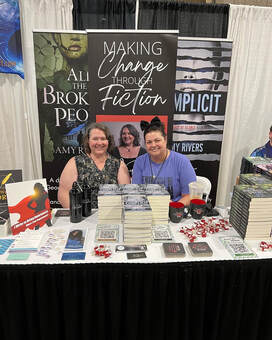 Me and my bestie at Denver Fan Expo Me and my bestie at Denver Fan Expo More talk about self-publishing. More talk about books. More talk about life. I’ve been thinking a lot about how my visual impairment has affected my life and work. I’m always brainstorming new story ideas. It’s all on the table! For sanity’s sake, I’d like to turn some of my social media attention toward this blog and new newsletter. More and more these days, I’m finding it difficult to create real connections on social and I want to connect with you, dear readers, friends, and family. So, probably a lot of random things, but I want to hear from you! What do you want to know? Are you an aspiring writer or an avid reader? Are you interested in the research that goes into books like mine? I look forward to hearing from you.
0 Comments
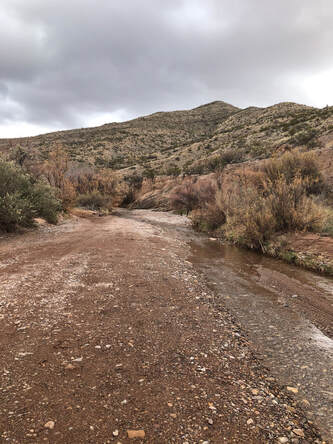 I'm writing the first in a series of books set in my home state of New Mexico. Near my childhood home, the creosote grows so thick we used to build our forts in it, pruning branches to make tunnels that only small creatures could navigate. As an adult, it occurs to me that we weren't the only small creatures out there, but as a kid, I was caught up in my imaginary world. Neither rattlesnake nor scorpion could keep me from spending every day hiking in arroyos, running an obstacle course through the red dirt, where cacti and barbed wire reached out to grab hold of passersby. I like to spend time in the place I'm writing about as much as possible, but my hometown isn't on the way to anything and, as my family continues to relocate to other places, excuses to visit become more far-fetched. Not that I'd ever let that stop me. The pandemic has made travel less appealing, pitting my wanderlust and need to immerse myself in the setting of my novel against the health and safety of myself and those I love. The desert will have to wait. When you live in the desert, you seek water. The creek that ran through the canyon near my house became the setting for many things: elementary school field trips, first kisses, and more nefarious purposes that required secrecy and remoteness. Even when the creek was dammed for irrigation further up the canyon, people still visited its bed. In monsoon season, the creek used to flood, forcing vehicles to take the long way around to avoid getting caught up in a flash flood. Everything is extreme in the desert. People expect the hot days, but they forget about the cold nights. Hikers die every year having allowed the beauty of the scenery to distract from staying hydrated. Picturesque sunsets. Violent thunderstorms. Fields of white gypsum. Wind storms so strong that walls of dirt cross the barren landscape. It rains in the desert. Big, torrential rains that flood the streets and wreak havoc to homes and businesses. Short-lived sprinkles that leave all desert-dwellers desperate for more. The smell of rain in the desert is distinct. It's something that I never knew to miss until I moved to the green of the Pacific Northwest. Even now, in Colorado, rain is just rain. A piece of my heart is in the desert still. 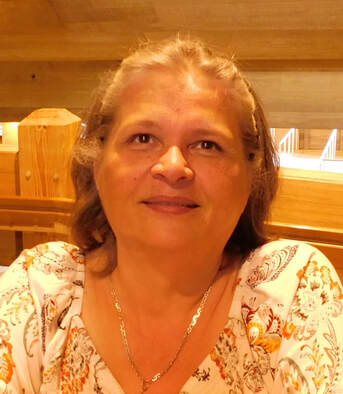 By Donna Schlacter When I was a kid, I loved to read. And once I’d worked my way through the children’s section of our local library, I begged the librarian to let me read from the adult section. I read Jack London and others who wrote about animals, moving on to Zane Grey and Louis L’Amour because I loved horses. The librarian made sure she approved every book I checked out. And then I discovered Agatha Christie, which ignited my passion for mysteries. Everywhere I went, I looked for the baker’s son who pulled wings off flies, or the mailman who kicked dogs, or the housewife who wore her negligee to hang clothes—all of those peculiar mannerisms Miss Marple mentioned in solving the crime. And I worked on triggering “those little grey cells” like Hercules Poirot said. In writing class, I was the kid who got A+ because of word count. I loved to write. I’d make up stories about anything. The last leaf on the tree in the fall—what was it thinking? Why didn’t it want to join its friends? How about the one bird sitting by itself on the telephone wire. What had it done to be excluded from the flock? Or did it think it was an eagle and not a pigeon? Stories from my childhood like The Ugly Duckling andThe Prince and the Pauper ignited “What if. . . ?” questions. What if I’d been born in a different family? What if I wasn’t the oldest? What if I had a twin? Perhaps because I was the oldest and I got blamed not only for what I did but for what my siblings did as well, I have a strong sense of justice. Right is right, and wrong is wrong, and there isn’t much grey area between the two. So writing mysteries seemed like the way to ensure that my world was always in alignment. Starting around 2002, after writing short stories and other short pieces for a while, I wondered if I had a full-length book in me. I heard about National Novel Writing Month, and decided to find out if I could write 50,000 words about one thing: solving a mystery. I started late, had only the barest bones of a story, and ended up writing myself into a corner because I didn’t know who the criminal was. But I persevered, decided who would be the killer, and wrote 7,500 words on November 30th, bringing my word count to just over 50,000 words. Did I mention I’m also very badge-driven? So on December 1st, I went back in and put in red herrings and clues as to the killer’s motivation, because I hate it when a television show or author springs the solution without offering any clues along the way. After about ten more revisions through the years, I independently published that book, now renamed No Accounting for Murder,the first in a series. Number 11 came out the end of December under my pen name of Leeann Betts. So what inspires me? Well-written stories ignited the passion to prove myself worthy of reading and dreaming and imagining along with the author. The characters and stories tumbling around in my head cry out to be written down. Hearing others say, “I’d like to try writing a book some day”, but not being willing to do the hard work keeps me going. Seeing my father hold the story of his life in his hands as a book published for the family confirms my calling. And finishing the story of his life as he wanted, even after his passing, reminds me that time is short and we aren’t always guaranteed tomorrow. Hearing readers say they enjoyed the story confirms that I have a gift that shouldn’t be wasted. Teaching at conferences and online courses, and hearing students say, “I finally get it” keeps me working at my craft. And sharing my story with you reminds me that this isn’t all about me—it’s about what God is doing in me and through me. The way I figure it, others have their way of touching people’s lives, through their speaking, their service, their preaching. I touch lives through my writing. But that writing is still only a tool. The message I bring is that God offers second, third, fourth and more chances. I’m living proof of that. I’ve messed up more times than I have fingers and toes. Yet here I am, being used by Him to share His love. What more inspiration do I need? About Double Jeopardy: Set in 1880, Becky Campbell leaves her wealthy New York lifestyle in search of her father, only to learn he was murdered in the small town of Silver Valley, Colorado. Unable to return to her mother in humiliation and defeat, she determines to fulfill her father’s dream—to make the Double Jeopardy profitable. Zeke Graumann, a local rancher, is faced with a hard decision regarding his land and his dream. After several years of poor weather and low cattle prices, he will either have to take on a job to help pay his overhead expenses, or sell his land. He hires on with this Easterner for two reasons: he can’t turn his back on a damsel in distress. And he needs the money. Becky isn’t certain Zeke is all he claims to be, and after a series of accidents at her mine, wonders if he isn’t behind it, trying to get her to sell out so he can take over. Zeke finds many of Becky’s qualities admirable and fears he’s losing his heart to her charms, but also recognizes she was never cut out to be a rancher’s wife. Can Becky overcome her mistrust of Zeke, find her father’s killer, and turn her mine into a profitable venture—before her mother arrives in town, thinking she’s coming for her daughter’s wedding? And will Zeke be forced to give up his dream and lose his land in order to win Becky’s heart? Leave a comment to enter a random drawing for an ebook copy of Double Jeopardy. 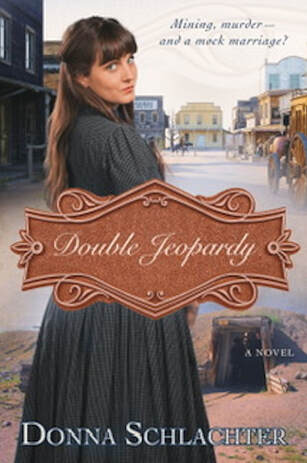 Excerpt: Chapter 1 1880 Silver Valley, Colorado Dead. Dead as her dreams and her hopes. Dead as a doornail, as her mother would say. Just thinking about the woman drove a steel rod through Becky Campbell’s slumping back. Perched on a chair in the sheriff’s office, she drew a deep breath, lifted her shoulders, and raised her chin a notch. She would not be like the woman who birthed her. Pretty and pampered. A silly socialite finding nothing better to do with her days than tea with the mayor’s spinster daughter or bridge with the banker’s wife. No, she’d much rather be like her father. Adventuresome. Charismatic. Always on the lookout for the next big thing. Now her breath came in a shudder, and down went her shoulders again. She tied her fingers into knots before looking up at the grizzled lawman across the desk from her. “There’s no chance there’s been a mistake in identification, is there?” He slid open the top drawer of his desk and pulled out a pocket watch, a lapel pin, and a fountain pen, which he pushed across the desk to her. “He was pretty well-known around here. I’m really sorry, miss.” Becky picked up the timepiece and flicked open the cover. Inside was a photograph of her family, taken about ten years earlier when she was a mere child of eight and Father stayed around long enough to sit still for the portrait. Her mother, petite and somber, and she, all ringlets and ribbons. She rubbed a finger across the engraving. To R. Love M. Always. Yes, this was his. And the lapel pin, a tiny silver basket designed to hold a sprig of baby’s breath or a miniature rosebud—a wedding gift from her mother twenty years before. She looked up at the sheriff, tears blurring her vision. “And his ring?” The lawman shook his head. “No ring. Not on his body or in his shack.” “But he always wore it. Never took it off.” He shrugged. “Maybe he lost it. Or sold it.” “I doubt he’d do either. My mother gave it to him when I was born.” She peered at him. Had he stolen her father’s ring? Or maybe Sheriff Freemont was correct. Maybe something as important as her birth hadn’t meant much to her father. Maybe she didn’t either. Was that why he left? Available at https://shoplpc.com/double-jeopardy/Amazon.com, and fine booksellers in your area. About Donna: Donna lives in Denver with husband Patrick. As a hybrid author, she writes historical suspense under her own name, and contemporary suspense under her alter ego of Leeann Betts, and has been published more than 30 times in novellas and full-length novels. She is a member of American Christian Fiction Writers, Writers on the Rock, Sisters In Crime, and Christian Authors Network; facilitates a critique group; and teaches writing classes online and in person. Donna also ghostwrites, edits, and judges in writing contests. She loves history and research, and travels extensively for both. Donna is represented by Terrie Wolf of AKA Literary Management. www.HiStoryThruTheAges.wordpress.com www.HiStoryThruTheAges.comReceive a free ebook simply for signing up for our free newsletter! Facebook: www.Facebook.com/DonnaschlachterAuthor Twitter: www.Twitter.com/DonnaSchlachter Books: Amazon: http://amzn.to/2ci5Xqqand Smashwords: http://bit.ly/2gZATjm What Can Be Online University: https://what-can-be-online-institute.teachable.com/ 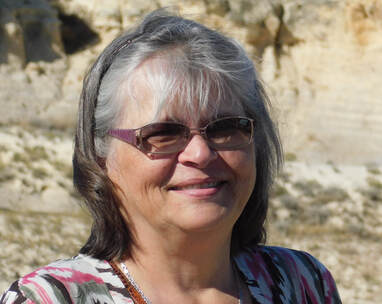 By Leeann Betts Readers—and writers, too, for that matter—often ask me where I get the ideas for my stories. Well, in this case, I wanted to set my story in Colorado so I could enter several state-based writing contests that require a Colorado setting. As I do with just about every book in this series, I made up a fictional town based on a part of the state I’d recently visited and which I thought readers might like to learn more about. The Grand Mesa/Mesa Verde National Park area on the western slopes of Colorado is a world unto itself. The scenery is spectacular, the weather is iffy, but the people are generally warm-hearted and compassionate. I also wanted a politically conservative setting, because while not exclusively so, politically conservative folks also tend to be church-goers, and I wanted both Carly and Mike to be slam-dunked into a situation where they had to re-examine their spiritual beliefs. Throughout this series, a little here and a little there, Carly and her husband have been introduced to the Christian faith. The couple who hosts Carly and Mike on their working vacation are named after very good friends—first names, only. Their last name was drawn from a desire to design a brand that I could draw. A Lazy L, in brand terms, is one that lays horizontally. The details about the black-footed ferrets are mostly true. Not about the truck accident that dropped several of the critters on the western slope, but they were transported down I-25 into Arizona and New Mexico. At the timing of this story, 2005, they were on the “extinct in the wild” list, although they have since recovered are now on the “endangered” watch list. Leave a comment, and I will draw randomly for a print copy (US only) or ebook version (winner’s choice) of Missing Deposits. About Missing Deposits: Carly looks forward to a vacation when Mike is hired to assist an association of ranchers in western Colorado catalogue their various mineral rights following the discovery of several large deposits. However, Carly soon learns that the real wealth—and the real danger—aren’t below ground. Someone is out to keep a secret bigger and more profitable than gold and copper. And they’re willing to kill for it. About Leeann: Leeann Betts writes contemporary romantic suspense, while her real-life persona, Donna Schlachter, pens historical romantic suspense. Missing Deposits is the 11th title in her cozy mystery series, and together she and Donna have published more than 30 novellas and full-length novels. They ghostwrite, judge writing contests, edit, facilitate a critique group, and are members of American Christian Fiction Writers, Writers on the Rock, Christian Authors Network, and Sisters in Crime. Leeann travels extensively to research her stories, and is proud to be represented by Terrie Wolf of AKA Literary LLC. Website: www.LeeannBetts.comReceive a free ebook just for signing up for our quarterly newsletter. Blog: www.AllBettsAreOff.wordpress.com Facebook: http://bit.ly/1pQSOqV Twitter: http://bit.ly/1qmqvB6 Books: Amazon http://amzn.to/2dHfgCE and Smashwords: http://bit.ly/2z5ecP8  Home after my last trip of the year. Home after my last trip of the year. This year, I didn’t send out Christmas cards. I opened every card that I received with love and gratitude and holiday spirit. I smiled at all the beautiful pictures, and read about others’ adventures. I didn’t reciprocate. I wanted to, sometimes. I thought about it now and again. But life happened, and the cards . . . well, they didn’t. I didn’t have time to write a newsletter with updates about all the things our family did this year. If I had, I would have written about watching my kids grow up, spending time with my family, and taking on new roles professionally. But all of those things took up all of my free time, so I never had a chance to get them all down on paper. 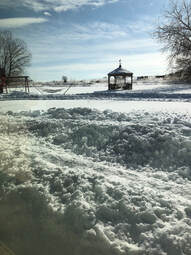 Snow in Boulder the week of Thanksgiving. Snow in Boulder the week of Thanksgiving. We didn’t pose for family photos this year. I try to do this every few years, knowing that every day is precious and that I’ll want to look back on this time. Instead, I have a phone full of candid shots that document our travels, our triumphs, and sometimes even our losses. I look at those photos, and the ones on our walls, and my heart swells with love. I didn’t finish writing my next book. But I attended conferences all over the country and began planning one of my own—my first conference as the Director of Northern Colorado Writers. I’ve done a lot of writing this year, and I know I’ll get to “The End” on the next book, but I’ve taken on a lot of projects so I’ve had to reprioritize. And that’s OK. I didn’t get to see everyone I wanted to this year. But I did get to spend important time with my best friend. She’s been dealt a difficult hand in this life, but she has always been there for me—to love and support me even when things are hard, or I’m an idiot, which happens more often than you might think. I am grateful that I have the opportunity to share that love and support with her. To be with her in times of sadness and joy, knowing that every moment we have together is a gift. 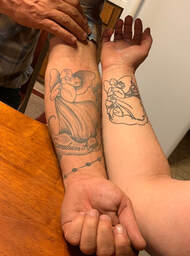 Grandma's angel sketch. Grandma's angel sketch. The list of things I didn’t do this year is long. I suppose it would be natural to feel overwhelmed—to regret. But I don’t. I re-think, re-envision, re-imagine. I change. I adapt. But I never regret, because to do so would be to diminish all of the things I havedone this year. All the memories I’ve made. All those precious moments that will carry me through the good and the bad times ahead. The New Year will be here in just a few days. I’ll turn another year older. And I’ll walk forward into 2020 confidently, knowing that I will make mistakes, but that I will strive to be kind, to be supportive, and to make choices from a place of love. I won’t do all the things I want to do. I won’t see all the people I want to see. And I may not send out Christmas cards (only time will tell). But, I will be there for the people who need me, and I will try to live each day of this New Year with passion, with creativity and with hope. Wishing you all a very Happy New Year! 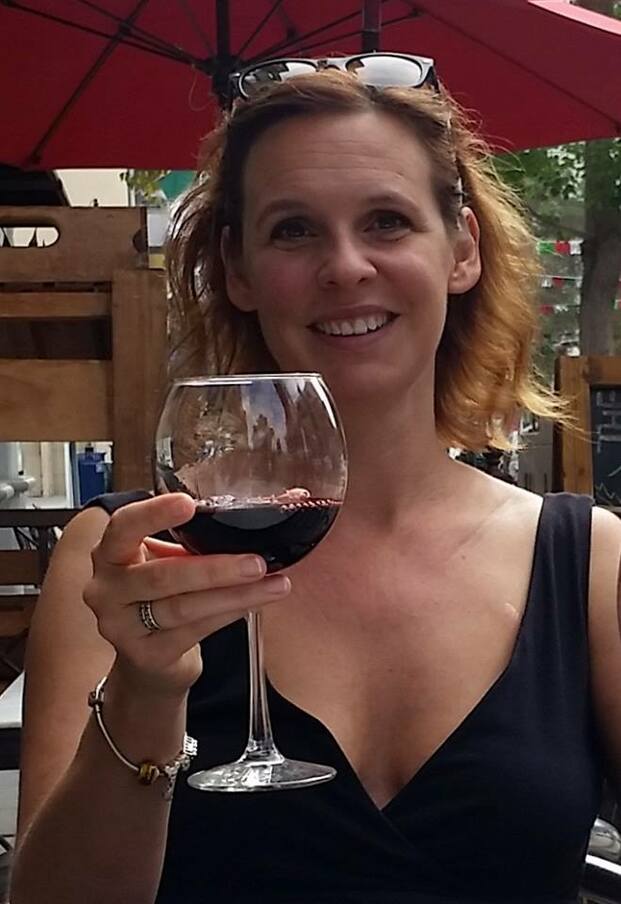 First, thank you, Amy Rivers, for asking for a guest blogger, and allowing me the honor of being one of yours. Even one who over-uses commas. I’ve been a devourer of books since I can remember, and a creator of stories since I can remember. There are few who see the world like I do. I see inspiration and stories everywhere. Snippets of overheard conversation, observing the couple sharing a meal but not a single word sitting across the restaurant from me, the faded 1920 brick building that used to proudly proclaim “HOTEL” and now just whispers it. There’s inspiration everywhere. My struggle is to take it all in and get it all out. I started a blog a couple of years ago as a way to get all the thoughts out of my head, and onto the page. It morphed into a site where I’d discuss ways to be sexy and not smarmy, why I love teenagers, half-moon camping in Hana, and generally how to be more loving and kinder to each other. It used to be a weekly blog, but life pivoted (my husband has MS and he rapidly declined for a bit) and now, looking at the state of the world, it looks like I need to fire it back up. I write erotica. I also write romance, science fiction, and paranormal romance. So far, in my albeit limited fiction writing career, erotica has taught me the most pointed lesson about human nature. Writing about sex, and humans having consensual sex is different than any other topic I’ve explored so far. It’s so taboo. I can’t figure out why. I mean, isn’t open and honest conversation the foundation of any relationship? Talking about sex, or reading about it, shouldn’t be any different. (Spoiler alert: we all are here as a result of sex). The lesson? Thanks for asking. The lesson is this: I can write an award-winning flash fiction piece about a little girl who has a honey bee friend named Leon, and Leon loves purple. No one assumes or has approached me about wanting to be a little girl again, or loving honeybees, or purple. I write a flash fiction piece about a futuristic commune where one of the jobs was sexual pleasure, and people assume and approach me about my wanting to cheat on my husband (I don’t) or if I secretly want to start a commune (I don’t. I’m very public about that, but that’s a post for another time.). It seems to me, that if you write about sex then everyone will assume you have done it, want to do it, or want it done to you. I still write erotica and erotic romance, but now I go in prepared for the comments, nasty “knowing” looks, and the surprisingly unwavering support from my friends and The Best Husband Ever. Where to Find Melissa's WorkCurrently I’m working on a series of erotic short-stories based on the energies of the 22 Major Arcana cards of the Tarot. I also have a full-length manuscript in the edit/re-edit stage about a girl who is charged with saving the world by healing the veil between our two worlds using the most healing energy of all time – orgasmic energy. I drop the occasional flash fiction piece on myerotica.com under the name “write2unpack.” Feel free to check it out if you are mentally and physically 18.
I’m a paralegal by day, story-teller by heart. I have a short story, Well You Know, Maybe It Was published in a “Flash – A Celebration of Short Fiction”, and another The Dansari due to be published in “Itty Bitty Writing Space” this year. My flash fiction Leon Loves Purple placed third in the Write on the River competition in 2018. I’ve judged fiction submissions for 4 years, and this year I will be judging the non-fiction submissions for Write on The River. I’m a member of Romance Writers of America, Emerald City Romance Writers, Write on the River, and a local writing group. In addition to my day job, my hobbies are: creating more loving worlds than this one, camping, gardening, and finding never-ending uses for essential oils. You can find my blog at www.write2unpack.com where I write about things that are sexy, ways to be charming and more loving, and also some Life Lessons from a Labrador. 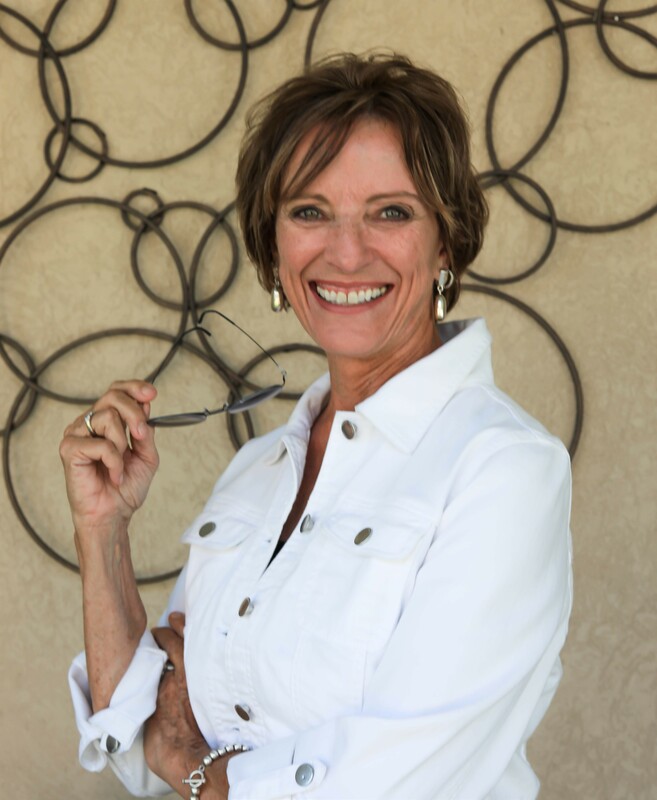 Jennifer Goble is a story writer. Note—not a storyteller, but, story writer. People tell their stories, and she writes them. Data for her dissertation came from women stories about their family systems including a dad, mom, sisters, and no brothers. Jennifer has a Ph.D. in Counseling Education from Colorado State University. Her career included teaching, school counseling, and twenty years as a therapist in private practice. Her primary dissertation research pertains to women raised with only sisters, no brothers. Married and the mother of three brag-worthy adults, and seven sweet grandchildren, Jennifer is happiest when life has order and kindness. She has many stories about thirty years as a farm wife. and memories of renovating an Andrew Carnegie Library and restoring it to include her home, a three-room bed and breakfast, and counseling center. Jennifer is grateful to be alive, healthy, and contributing. My Clients…My Teachers: The Noble Process of Psychotherapy 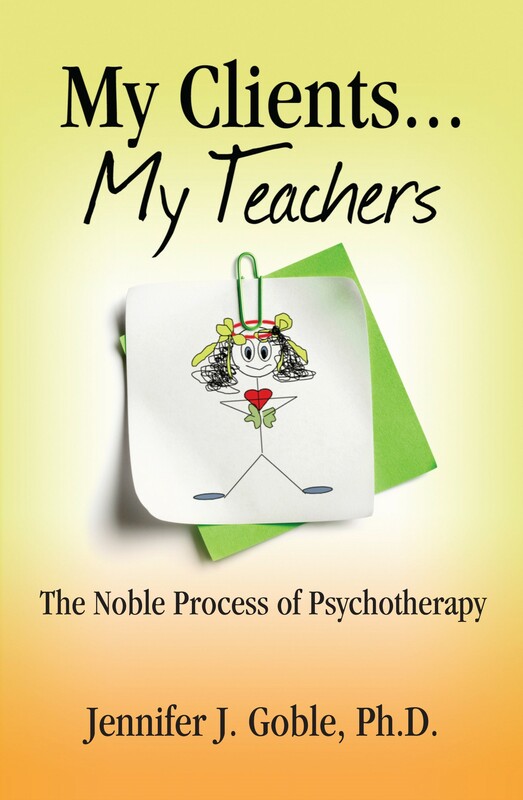 My Clients…My Teachers: The Noble Process of Psychotherapy, is her first book. It includes stories of her counseling client’s (permission given in writing, of course). Every story closes with what Jennifer, the counselor, learned. Currently, she is writing stories as told by rural women. Each woman tells her personal non-guided story, and Jennifer writes their words and posts them on www.jennifergoble.com. It is a delightful project, and the best part is hearing what falls between love and loss while growing up in small towns or on farms. It took retirement for Jennifer to exchange clinical terms for creative prose. She began a weekly newspaper column titled Mental Matters. It was one way to offer solutions without the calming ambiance of a counseling room. Down to nuts and bolts, “Dr. Goble” is a skilled co-dependent. Get paid for writing? What? She writes for others benefit, not herself. Also, she is not a saleswoman. She accepted her lack of salesmanship when, as a young farm wife, couldn’t sell industrial hand-cleaner to her kind farmer uncle who had black grease from fingertips to elbow. The good news, after six years of pro bono she does now get a penance for the column, and in January, with fearful apprehension, asked for a pay increase. Anxiety and doubt clouded her mind as she sent the email. She stared at the inbox and feared she would need to choose between status-quo or quitting. The response popped-up within five minutes and the editor asked if Jennifer could wait until the new budget year in July. OMGoodness—she did it, she asked, and the ceiling didn’t collapse. Now, she can fear July. Ridiculous? YES. She self-published, primarily because she lacked patience, thick skin, and time (she’s old) to jump-through-the-hoops of finding an agent. When an agent wrote, “Who would want to read stories like these?” she conceded; she didn’t have the tenacity to play the query/wait/deflate game. When asked, “When is book two?” Her answer is, “Never. I didn’t think the first one was much fun.” She is proud of her book and especially enjoyed connecting with clients for their written permission. Once the yellow and orange book with an adorable stick figure on a green sticky note was in her hands, marketing gave her anxiety. Signings were fun but not profitable. Speaking gigs and bookclub invites reaped more sales, but Web and Amazon results were meager. The ledger ink is still red. Jennifer has tried her hand at fiction, but real-life characters and plots seemed more enticing than those imagined. With the help of her critique group and listening to many fiction authors at book festivals, she finally got it: Parts and pieces of real people create fictional characters. J. A. Jance said, “With my characters, I get even.” Now, Jennifer feels a glimmer of excitement when flirting with some ‘novel’ thoughts. Imagine a sixty or seventy something protagonist with decades of lessons learned and unlearned, financial fears, deceased parents and siblings, dreams of college, sexy husband or new lover, flaming hot bookclub, hormones for libido, and grandkids who tell her how to dress. Don’t women of all ages deserve relatable books giving credence to their earned wisdom? Wouldn’t they enjoy stories to remind them they aren’t dead yet? Can you see a series? They say, “Write what you know.” You can follow Jennifer via her website, Facebook or Twitter. Where to Buy My Clients…My Teachers: The Noble Process of Psychotherapy
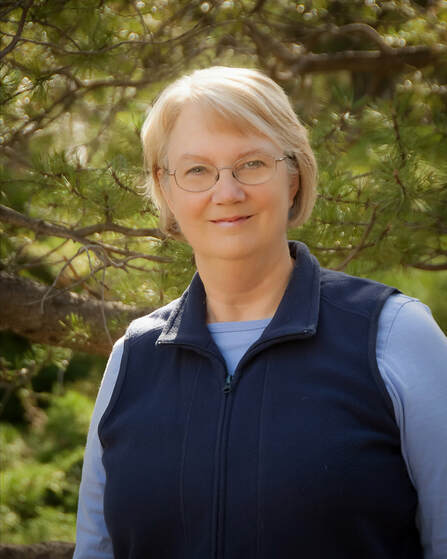 Margaret Mizushima is the author of the acclaimed Timber Creek K-9 Mysteries, which have been nominated for several awards including the RT Reviewers’ Choice, Colorado Book, and the Silver Falchion. Kings River Life listed her fourth, Burning Ridge, as a Best Book of 2018. Margaret serves on the board for the Rocky Mountain chapter of Mystery Writers of America, and she lives on a small farm in Colorado with her husband and a pack of dogs. She can be found on Facebook/AuthorMargaretMizushima, on Twitter @margmizu, on Instagram at margmizu, and on her website at www.margaretmizushima.com. Most of us have heard it before: “I want to write a book, but I just don’t have time.” Yes, I agree that it takes a lot of time to write a book, but it also takes so much more than that. And if you truly want to write one, you can get started by laying the groundwork even now, in what little spare time you’ve got. My writing career evolved over so many years, it’s hard to pinpoint when it began. Back before the turn of the century when I worked as a speech pathologist, I used to stand in the cashier line at the grocery store and use this “leisure time” to search for my next weekend escape in the form of a mass-market paperback. (Only a working mom of two thinks of grocery shopping as leisure time.) I’ve been an avid fiction reader my entire life and have used books to visit exciting places and meet entertaining people, but in those days I didn’t think it possible that I could write a novel myself. But reading is an essential first step. Shortly before I retired, I used weekends to begin writing the first chapter in a nonfiction work, until I became distracted by this wild idea for a story. During the next six months, I eked out every spare minute I could to write my first novel, terrible as it was. I was hooked—I set aside that nonfiction book and never looked back. But I also realized I had a lot to learn about writing fiction. After retirement from full time work, I took a part time job and started studying the art and craft of fiction writing. I attended writing conferences, took creative writing classes at my local university, participated in critique groups, and studied how-to books on writing. When I first told friends and family that I planned to write a novel, I received a wide range of responses, from skeptical raised eyebrows to words of encouragement. I soon learned how easy it was to become discouraged. Some people love to burst the dream bubble of others, and I learned to avoid discussing my plans with those naysayers. When I first started writing, I sought feedback from family and close friends, but soon I ventured into critique groups, a necessary stage in any writer’s life. I learned how to find other writers who would give honest and responsible feedback to help me improve my craft. I wrote many manuscripts in a variety of genres over the years, but the turning point came when I decided to write a mystery. I read and outlined the works of bestselling authors I loved: Sue Grafton, J.A. Jance, Margaret Coel, Michael Connelly, and Lee Child, to name a few. These wonderful mysteries and thrillers provided inspiration, but it took sitting in on a conference workshop on how to write a mystery to get me started. They say write what you know and research before you write what you don’t. I took this advice to heart. I decided to set my mystery series in a small mountain town—similar to the one I grew up in but fictional—and to include a veterinarian as one of the protagonists, because I’m married to a vet. I wanted to write a police procedural, so it only made sense to create a K-9 Deputy and her dog, which required a great deal of research on my part and some awesome consultants who agreed to help. But the fact that I’d lived around dogs, observed their behavior, and participated in search and rescue training with a couple of our dogs certainly helped. Thus the Timber Creek K-9 Mysteries featuring Deputy Mattie Cobb, her K-9 partner Robo, and veterinarian Cole Walker were born. Although the process took years, I found first an agent and then an editor and publisher that I love. Crooked Lane Books and I released Killing Trail, book one in the series, in December 2015. We now have four books out with two more under contract. And it all started with that horrible manuscript written more than a decade ago that will never see the light of day. So if you want to write a novel, go ahead and get started. Read, educate yourself, write, seek critique, revise, repeat. Find like-minded people and friends who will encourage you along the way. You can do it, even if you have only a few hours each week to dedicate to the process. Go ahead and get started! Burning Ridge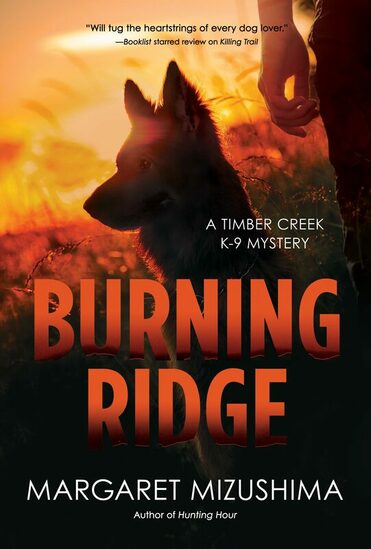 Colorado’s Redstone Ridge is a place of extraordinary beauty, but this rugged mountain wilderness harbors a horrifying secret. When a charred body is discovered in a shallow grave, officer Mattie Cobb and her K-9 partner Robo are called in to spearhead the investigation. But this is no ordinary crime—and they soon become the targets of a ruthless killer. Find Margaret on Instagram, Facebook, Twitter and her website Where to Buy Burning Ridge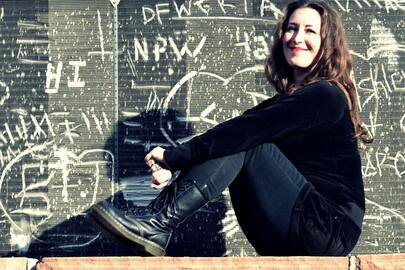 Jene' Jackson was raised all over the U.S. as a preacher’s daughter before finally rebelling. When she’s not working on her first novel and the sequels to her memoir, she’s belly laughing with friends, making art, photographing, singing jazz, or squeezing words from her teenage children while driving them home from school. She lives in Colorado Springs and even does yoga and hikes every now and then like a good Coloradan. You can connect with her on Facebook at facebook.com/JeneJ, on Instagram at instagram.com/spiralspiral, and at jenejackson.com. You can buy her book at https://www.amazon.com/Oat-Project-Faced-Finally-Summer/dp/0997925108/ Most of the time, I have to spiral into things, backwards, sideways, hurly burly; straightline goes awry. Writing has been no different. I was a reader, not a writer. Yes, I could pull “A” essays out of my head and hands in the hour before they were due. But the first time anyone ever suggested I had something unique came in college. When I apologized for what I knew would be a poor performance on a 3-hour essay test (history) because I had studied only thirty minutes, my professor said, “The content wasn’t there like usual, Jene’, but you write so well, I couldn’t tell. You have a gift for making complex concepts understandable, and you should use it.” I ignored him, of course. I was a singer, photographer, and reader; not a writer. Over a decade later, as the stresses of parenthood made it clear I needed time alone, I began to write. Essays moved into children’s fiction. A journal published an article and I wrote several picture books that got nibbles but no bites from agents. I connected with a local writers organization and honed my craft. Then, after six years of writing for children, with one question from one friend, I spiraled into what seemed like a frivolous project that became my first memoir, The Oat Project: How I Faced My Fear and Came of Age in One Wild Summer. When I met fellow mothers from my daughter’s school at a coffee group, they found out I had never been drunk--I was 37, a virgin-when-married mother of three children. They decided to throw a party to get me drunk, and as we planned it, one of them asked, “What else have you never done?” That question became a list of 25 “wild oats” I’d never sown--I had been a leader, preacher’s daughter who’d never rebelled--they wanted to do with me over the following summer. Rock concert, smoking (even marijuana!), dancing, watching porn and more, they were nothing compared to the fears I faced as I resisted then embraced transformation. I wrote the whole summer, journaling and recording as it happened in composition notebooks that, when transcribed, became a 500-page manuscript. It took me eight years to edit, through the end of my marriage, my mother’s battle with cancer then death, job changes, depression and anxiety, learning to navigate single motherhood and becoming my real self. But finally, in 2016, after 18 months of morning and evening writing, I wrote “The End.” Despite solid interest from agents, I decided to publish it myself, because I knew in my gut it needed to be in the world as it was. It took several months to produce, and I stuck with my decision to make the cover a photo of the last task on the wild oats list: a tattoo. The launch party was a huge success, and though building sales has been much more difficult than I imagined, the book is beginning to find its audience. Per a request from a rockstar agent, I’m currently working on a companion guide to help others create and do their own Go Wild list. Why does all this matter? Because life matters. So often, we writers judge every moment we are not putting words on a page. I actually don’t believe in procrastination any more. Over and over, I look back and see that where I thought I was going too slow, it was exactly the right pace, for myriad reasons. For example, a few months after The Oat Project came out, I anguished over my inability to build sales, and my therapist said, “How can you market a book about you when you don’t love yourself?” So I’ve spent the last two years working hard to face and process my trauma and wounds, to heal, and to finally, really, love myself. The result has transformed my writing and writing life. Instead of guilt for not getting to the page, I notice roadblocks or needs that resolve when I give them attention and care. I share this with you so that perhaps it helps you to shed your shoulds, to love your self and your writer self wherever you are in the process, and to know that whatever it looks like is beautiful. I still flail and trip around and all over pages, but instead of becoming blocked or frozen, I keep going. (I’d like to fistbump you all right here.) Apart from the need to “get it out of my head and onto the page,” I am inspired by authors who weave everyday resonance and extraordinary wisdom into fiction. Frank Herbert’s Dune series (the original six), Ursula K. Le Guin’s works, Guy Gavriel Kay’s The Summer Tree, Martha Grimes’ Richard Jury series, and Tolkien’s works: these I’ve read many times over. They inspire me to learn and grow so that my writing resonates like these, so my readers say, “I never thought about it that way.” The Oat Project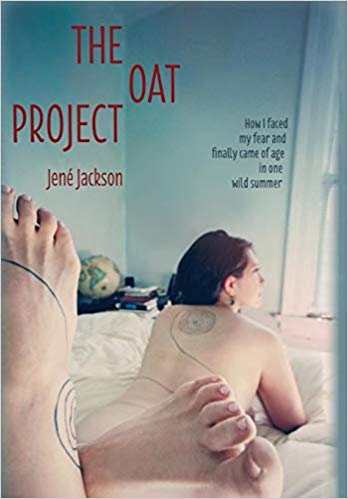 A former evangelical Christian and virgin-when-married mother of three finds the courage to explore her wild side, at 37. Rock concert, smoking (even marijuana!), dancing, watching porn and more, the 20-plus 'wild oat' tasks she tries over one summer are nothing compared to the fears she faces as she resists then embraces transformation. Where to Buy The Oat Project Jim Campain spent the majority of his career devoted to working with children, youth, and families as a mental health provider. His interest in writing the Mysterious Miss Snoddy series is to introduce young readers to basic historical facts about our country by captivating them with an exciting mystery. His wife Jan is his inspiration and they spend their time together in Colorado and Louisiana, enjoying the best the mountains and gulf have to offer. One of my first loves in life was a tablet. Not a Surface Pro 6, Samsung Galaxy, or Apple iPad but a Big Chief tablet. It wasn’t wireless with a chrome case and ten inch screen. Instead, it was bright red with the face of a noble Native American chief gazing sternly around my first grade classroom. I was in country school with twelve other students, grades K-8. Odds are I had ridden my pony on the opening day of a new school year, with my Big Chief tablet safely tucked away next to number 2 pencils, a water color paint set, and a bologna sandwich. With my name printed on the impressive cover, I opened it up to reveal wide- lined, off-white pages. The alluring scent of a new tablet was unlike anything I had experienced before. Granted, some sheets had knot-like blemishes the size of half-dollars, but that mattered not. There were assignments to complete, problems to solve, and, most importantly, stories to create. Fast forward some fifty years. I had finished presenting a conference workshop at a western university and was approached by members of a California community. They asked me to come to their organization and train them in the material I had just presented. I had a dozen reasons why others could do a better job than me and gave them names of people I considered more expert on the topic. “No, we’d like you to come,” they responded. I persisted to assure them that others had more data, authority, and proficiency, but they would have none of it. Then they said the five words that changed everything for me: “Just tell us your story.” That simply sentence unlocked unforeseen opportunities and released reluctance and doubts within me. For the next few years, I had the privilege to teach, train, and consult in sixty communities across twenty states. I believe it was because stories allowed me to connect with others on a deeper and more meaningful level. “Stories go far beyond simply revealing facts and data — stories emotionalize information. They give color and depth to otherwise bland material. [Readers] become emotional owners of the story you are telling,” (Peter Guber). Apparently, the story line I wove into the data that day struck a chord with them. I wrote a great deal during my career as a clinical social worker. However, my writings were limited to case notes, client histories, behavioral observations and assessments, clinical evaluations, and court reports. Only after I retired did I venture into the world of fiction. In the past two years, I’ve had three middle grade historical fiction stories published by Hot Chocolate Press, and a fourth coming in the Spring of 2019. This series, The Mysterious Miss Snoddy, tells the stories of a teacher with a questionable past, and three of her students who are determined to uncover a secret she’s been hiding. My goal, as an American history buff, is to capture middle grade readers with an adventure while making important events in our country’s past come alive. I like to think of the series as history wrapped in a mystery. The inspiration for the series stemmed from a casual conversation with my wife when she mentioned that her older brother had an elementary teacher named Miss Snoddy. Apparently, little was known about this woman. She was somewhat of an enigma, however, the memory of the high-topped, black, lace-up shoes she wore everyday left a lasting impression. With three grandchildren aged nine and ten, I realized what they could and would do with the poor woman’s name. From there, I created her mysterious past and wed it to history. Voila! A series was created that has found its way into twelve school and public libraries. This series has been enjoyable to write and has emerged with a certain ease and very little angst. It may be that as I’ve studied the science of writing, I’m released to let the art of writing flow more freely. I’ve been fortunate to learn from many excellent authors and teachers in northern Colorado and have enrolled in classes offered by Northern Colorado Writers (NCW). The finer points of writing, as well as the gestalt of defining oneself as an author, has been an empowering and enlightening experience. My business cards now include the title, Author. I believe in the Creator and that a creative gene resides in all of us. I find it interesting how many people enthusiastically answer, “Yes!” when I ask if they have a story in them. There may be any number of keys to unlock that creative spark … writing did it for me. When not appreciating the mountains of Colorado, Jan and I spend our time in Louisiana Cajun country enjoying the Gulf. The potential for a new story rests around every peak and bayou. The Mysterious Miss Snoddy: The Orphan Train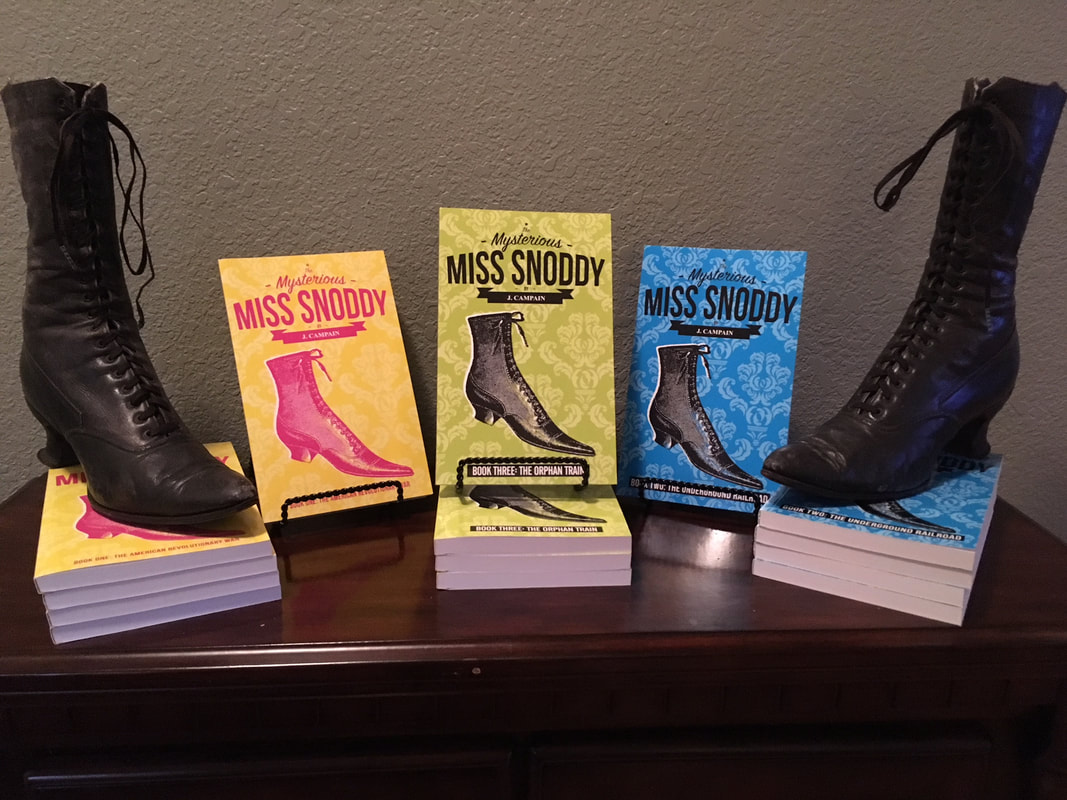 Ava, Ellie, and Griffin are very fortunate children. They have families, friends, a nice school, and enjoy many privileges in their lives. When a classroom speaker tells them about the Orphan Train, they become interested in the children who rode the train in search of loving families. After learning that not everyone who adopted children treated them well, the kids are angered and decide to do something about it. The three friends convince Miss Snoddy to take them back in time to purchase tickets on the Orphan Train so they can protect innocent children from evil-doers. Everything goes as planned until the unthinkable happens and their friendship is threatened. Ava, Ellie, and Griffin must dig deep and trust in each other, Miss Snoddy, and new friends in order to survive. Where to Buy The Mysterious Miss Snoddy: The Orphan Train |
AuthorI'm generally pulled in a million different directions and I wouldn't trade it for the world. Here's a glimpse of my life - hope you enjoy it! And if there's a big lapse between posts, well, that's the way life goes in Amy's world. Archives
October 2022
Categories
All
|
|
Copyright 2024 by Amy Rivers. All rights reserved. |
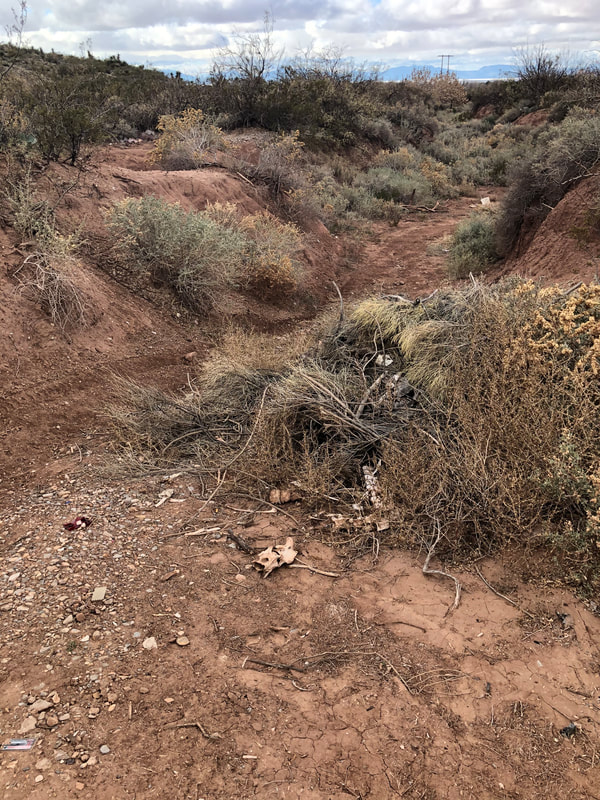
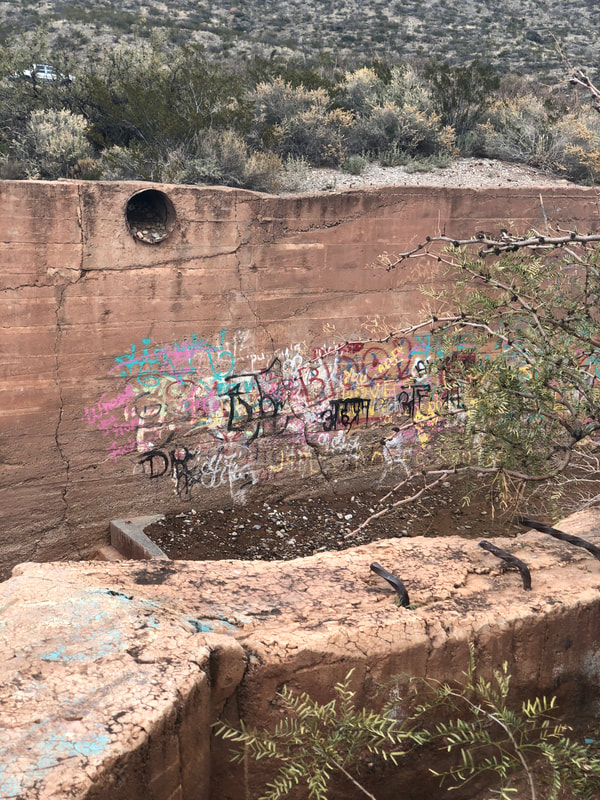
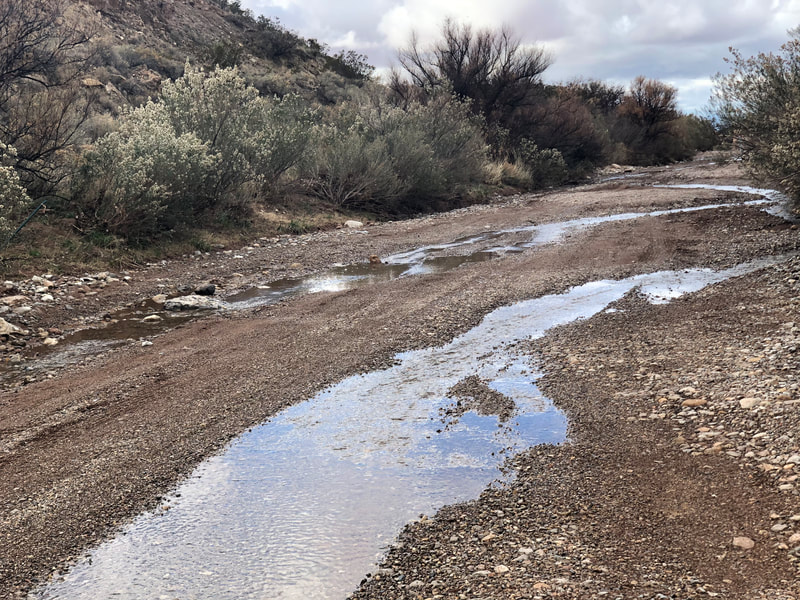
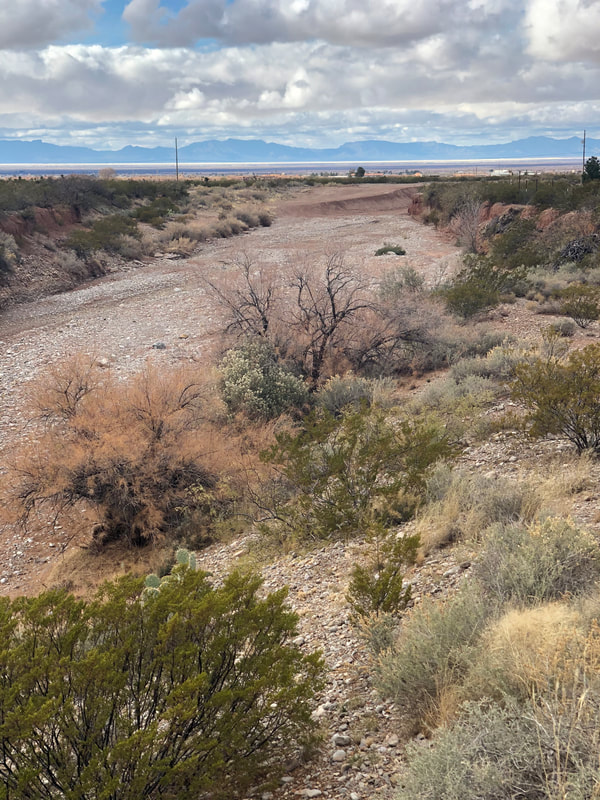

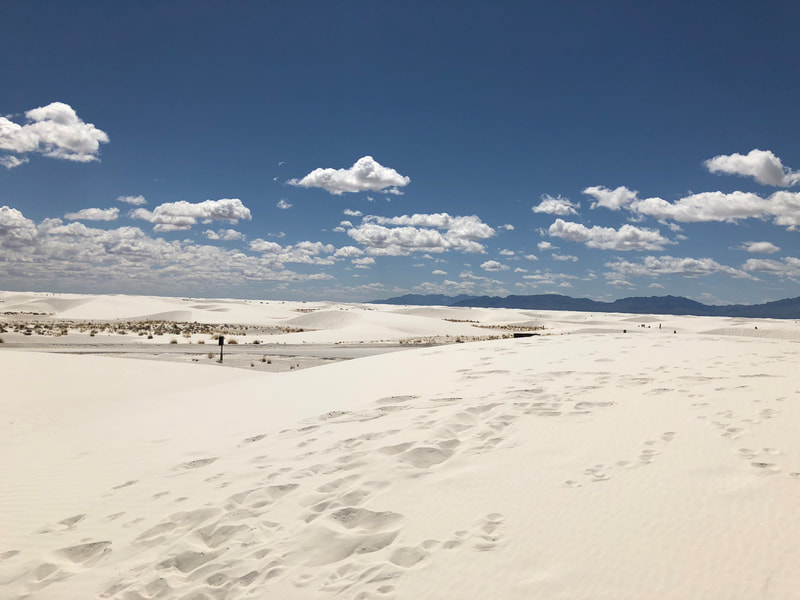
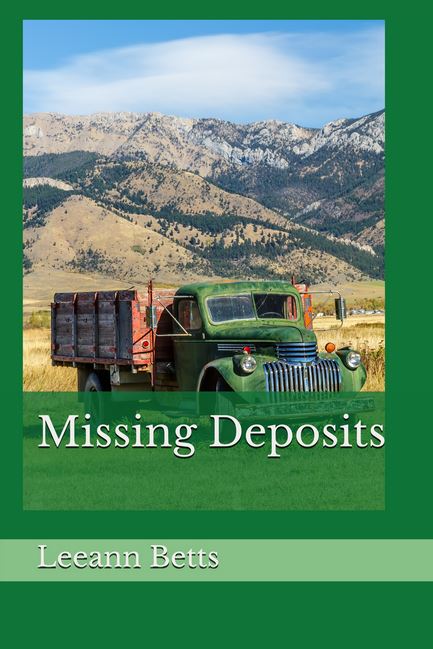
 RSS Feed
RSS Feed